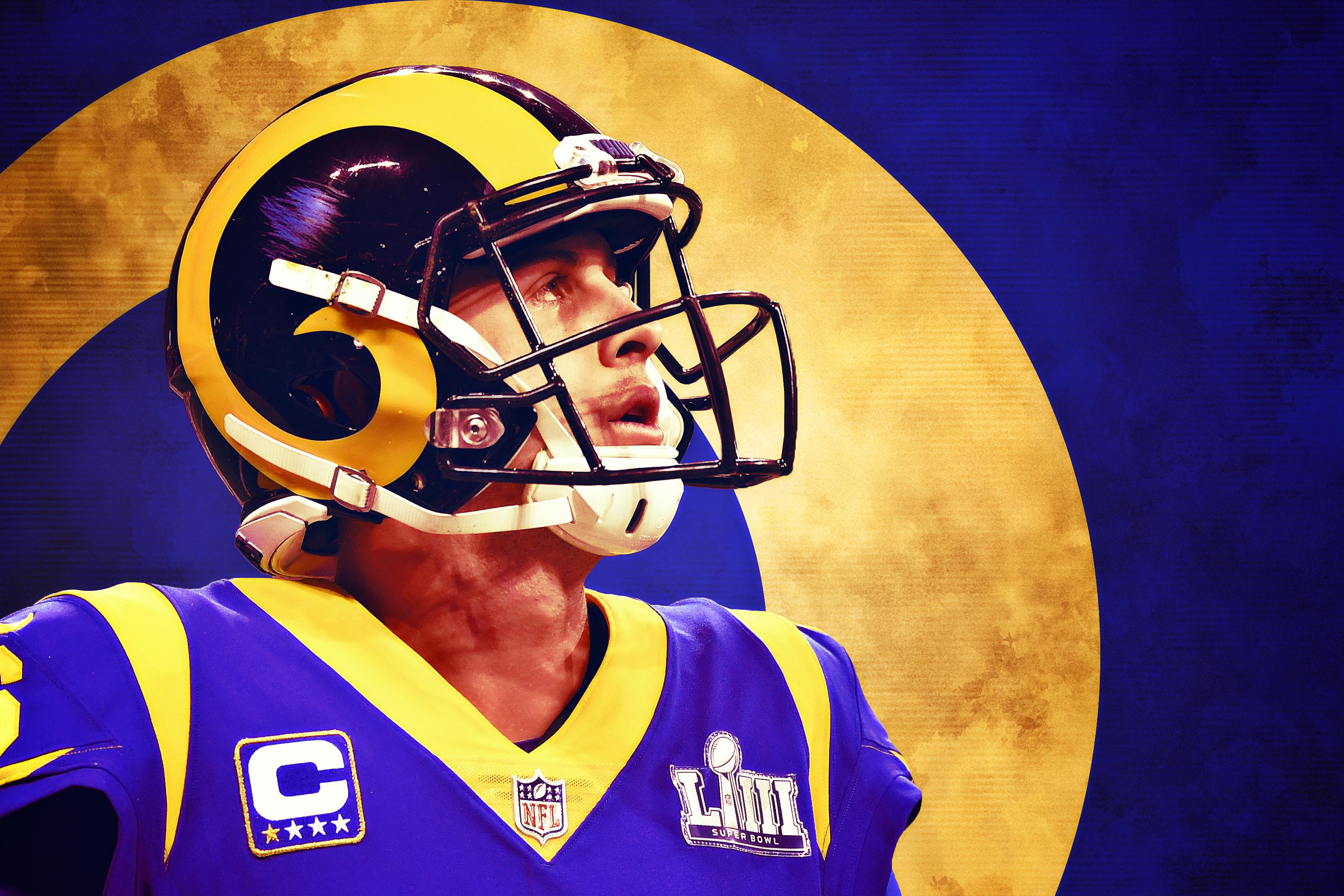
Last week, The Ringer’s Robert Mays examined why NFL teams find the decision to give a quarterback a lucrative contract extension so difficult. When the benefits of having a quarterback on a rookie contract are so obvious, why would a team tie up long-term cap space to a passer unless they are absolutely certain he’s worth it?
“It’s almost like finding a wife,” former quarterback and current ESPN analyst Dan Orlovsky told Mays about the bond between QB and play-caller earlier this month. “You search for so long, and you know how hard it is. And once you find that one, you don’t want to let her go.”
The Rams have decided Jared Goff is worth it, and they are not letting him go. General manager Les Snead proposed a four-year contract extension to Goff on Tuesday, and Goff said yes. ESPN’s Adam Schefter reports the deal is worth $134 million including an NFL-record $110 million guaranteed. The four years are tacked onto the final two remaining on Goff’s existing deal, so the Rams have him under contract through the 2024 season. The Rams signed head coach Sean McVay and Snead to contract extensions through 2023 earlier this offseason, and have given expensive, long-term deals to defensive tackle Aaron Donald, running back Todd Gurley, and receiver Brandin Cooks in the last year. Adding Goff into the mix locks up the Rams core for the next few seasons, which is as far into the future as NFL teams can reasonably look. But in football, a core group can get a team only so far. Goff and McVay’s marriage is the heart of the Rams’ success, and the organization is hoping their partnership continues to blossom.
Average annual salary is a flawed metric when considering NFL contracts, but by that measure, Goff will earn $33.5 million when the extension kicks in, tied with Aaron Rodgers for third-highest among quarterbacks. But don’t be distracted by the sticker price: In 2021, when Goff’s extension kicks in, the salary cap is expected to be north of $210 million per team. That would put Goff’s salary at roughly 16 percent of the Rams salary cap, which is exactly in line with the percentage teams usually allocate to franchise quarterbacks. It seems strange that Goff could be worth $33.5 million to a team, but league revenue has doubled in the past decade from $8.5 billion to more than $16 billion. The salary cap is a portion of league revenue, and as the NFL salary cap rises, the highest-paid quarterbacks in the league become bargains a few years into their deal. This is excellent news for Patrick Mahomes and his quest to reach $50 million in annual salary, a benchmark that becomes more attainable with every milestone set by other players.
Goff’s rookie season in 2016 feels like a decade ago for a variety of reasons. The no. 1 overall pick played only seven games, but it constituted one of the worst stretches for any quarterback in modern football history. His efficiency among rookie quarterbacks with 200 or more dropbacks surpassed Ryan Leaf as the worst since the NFL-AFL merger in 1970. He was the most-sacked quarterback in the league per dropback, and his dropbacks gained the least amount of yardage in the league. But the firing of then-head coach Jeff Fisher after the 2016 season, and the arrival of his replacement, McVay, turned around the fortunes of Goff and the Rams almost immediately.
“Sean was mocked when the Rams hired him,” Orlovsky, who was on the Rams training camp roster with Jared Goff and under McVay in 2017, told Mays. “And Jared Goff was mocked for a year and a half. There is that emotional connection. They want to prove they can because there were so many people saying they can’t.”
Under McVay, the Rams offense emphasized fooling the defense by creating mismatches and went from the league’s least efficient to the second-most efficient in two years. In 2018, Goff was the clear no. 2 to Patrick Mahomes for MVP by midseason, and Goff’s season peaked in L.A.’s epic 54-51 victory against the Chiefs on Monday Night Football in Week 11.
But Goff’s numbers fell off of a cliff late in the season after defensive coordinators identified how to exploit his subpar anticipation skills, or the art of throwing before a receiver is open. Through that Chiefs game, he was the league’s best play-action passer, but in the three games that followed, he was below the league average. On his non-play-action passes, Goff dropped from ninth in the league through his first 11 games to 32nd of 35 quarterbacks in his final three games of the year. It’s a small sample, but it reached a nadir in the Super Bowl, when the Patriots held the Rams offense to just three points and New England won despite being held to their lowest-ever point total in a Super Bowl. McVay took the lion’s share of the blame after the game for what he told Sports Illustrated’s Andy Benoit was overpreparing, but Goff’s lack of anticipation stymied the Rams’ offense.
With this extension, the Rams are making a massive bet that Goff’s anticipation troubles are the result of him learning at hyperspeed, not the ceiling on McVay’s play-calling greatness. It’s a worthy gamble considering how far McVay and Goff have already come in two years. McVay is just 33 years old, but Goff, who turns 25 in October, is also quite young for a quarterback who has already been to a Super Bowl. There is potential for this to go wrong, especially if the Rams follow the path of previous Super Bowl losers and miss the playoffs, or if Goff can’t recapture his form from the first three months of last season. But based on everything we’ve seen from these two in their two years together, they are worth betting on in the long run—and the bet isn’t as big as it seems. How nice it is to be young and in love.

